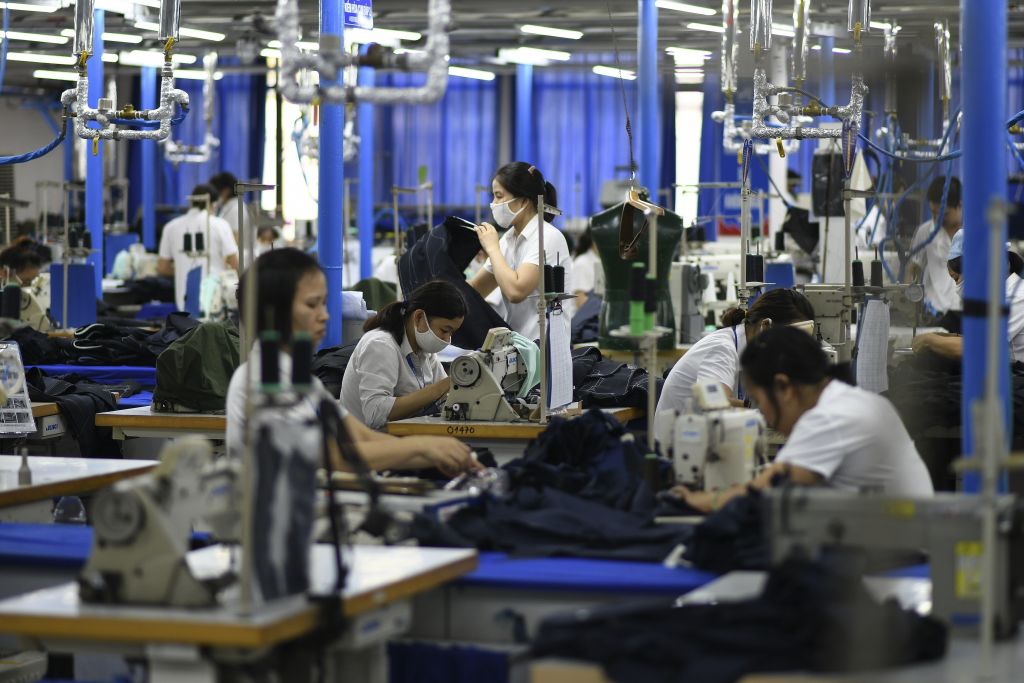
Vietnam demonstrated its serious commitment to addressing inequities when it adopted the national strategy for gender equality for 2021–2030. The strategy gives Vietnam the potential to become a role model for neighbouring countries such as Cambodia and Laos. But this strategy alone isn’t sufficient to make the desired progress. Vietnam needs to tackle a gender-biased informal economy and deep-rooted stereotypes by challenging structural barriers and societal norms.
First, the Vietnamese government must regulate the informal employment sector, which disadvantages a significant number of women. Informal workers make up 68.5% of the nation’s workforce, and women are 34% less likely than men to have written contracts. The Labour Code doesn’t provide workplace protection for informal workers, which means many women are left unsupported on issues such as sexual harassment. Applying employment regulations to the sector, requiring businesses to register their operations and monitoring them would lead to more legal rights for women, fairer pay and protection from gendered harassment. On a wider scale, the formalisation of Vietnam’s informal sector would reduce poverty and promote greater equality for marginalised groups.
Beyond the workplace, Vietnam’s efforts towards gender equality are hindered by ingrained patriarchal structures and conservative attitudes towards women. Domestic violence and spousal rape are illegal under Article 2 of the Law on Domestic Violence Prevention and Control but, as reported by Australia’s Department of Foreign Affairs and Trade last year, domestic violence victims in Vietnam are often discouraged by police from bringing criminal charges. A victim-blaming culture and traditional views of marriage and honour, along with the treatment of domestic violence as a private matter, perpetuate the problem. To change such attitudes, the government needs to invest further in public-awareness campaigns, education programs and research.
To raise public awareness, the 2021 launch of the national action month on gender equality and gender-based violence was a good start. But Vietnam must go further and utilise online platforms such as Zalo, the country’s most popular messaging app, to share educational content that promotes gender equality and stimulate open discussions through targeted advertising. It should also partner with prominent news outlets such as VNExpress to publish articles, interviews and opinion pieces that challenge gender stereotypes and highlight women’s contributions and achievements.
Educational programs were mentioned in the national strategy and there are plans to integrate gender and gender equality into the school curriculum from 2025. This involves adopting gender-sensitive teaching materials and methods, challenging gender stereotypes and promoting equal opportunities for all students. But schools are not currently mandated to follow these guidelines, and that must change.
Vietnam should also develop an official sexual health curriculum. The Ministry of Health recently collaborated with the Health Bridge Foundation of Canada to develop a new comprehensive sexuality education program, which was introduced in some Vietnamese schools. The government must now implement an official sexual health curriculum across all schools. Educating both boys and girls on gender roles, consent and healthy relationships will help dismantle stereotypes and nurture future generations that champion gender equality.
Further research is needed to understand the full impact of misogynistic social norms on gender inequality, such as women’s obligations to the family and men’s dominance in positions of power and authority. Based on the research findings, Vietnam should then adopt the United Nations’ gender mainstreaming approach to develop effective strategies and interventions to change such attitudes.
If Vietnam makes these commitments, it could share its best practices with other countries in the region, including those like Cambodia that are yet to adopt formal strategies for promoting gender equality, and others like Laos that could improve on their existing strategies. Vietnam is well placed to catalyse meaningful action across the region for a more inclusive future.

